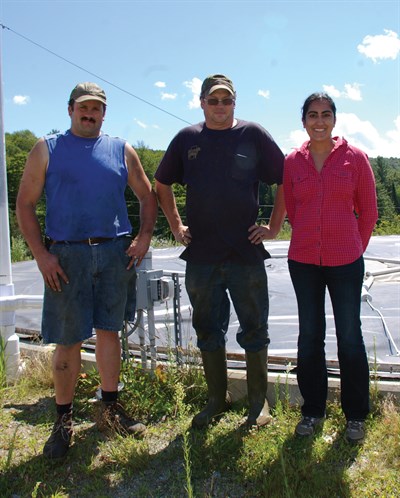



Biogas generated in a manure digestion system consists of about 60 percent methane and a small amount of hydrogen sulfide, with the remainder being carbon dioxide. When burned in an engine, it produces about 60 percent of the power available from pure natural gas.
In Hyde Park, Vt., Joneslan Farm, a dairy farm milking 230 cows and owned by the Jones family, crunched the numbers and decided that a methane-generating system at their dairy was doable. With the help of TWS, the Joneses completed construction of their system in August of 2012. The Joneslan system is designed to generate 65 kilowatts of electricity at full capacity. The generated power is used to power the digester, with excess power being sold back to the grid through Vermont’s group net metering program. The waste heat from the generator is used to heat the digester, which is a fully insulated underground installation. The excess waste heat, not used for heating the digester, is sent to the milking parlor to generate hot water for milk vessel washing. The digested solids from the digester are dewatered in a screw press to create organic solids (of 35 percent solid content) for use as animal bedding. After installation of the digester, the farmer is realizing significant savings in power, bedding, and furnace oil, as well as reduced odor, avoided green house gas emissions, and better quality liquid fertilizer.